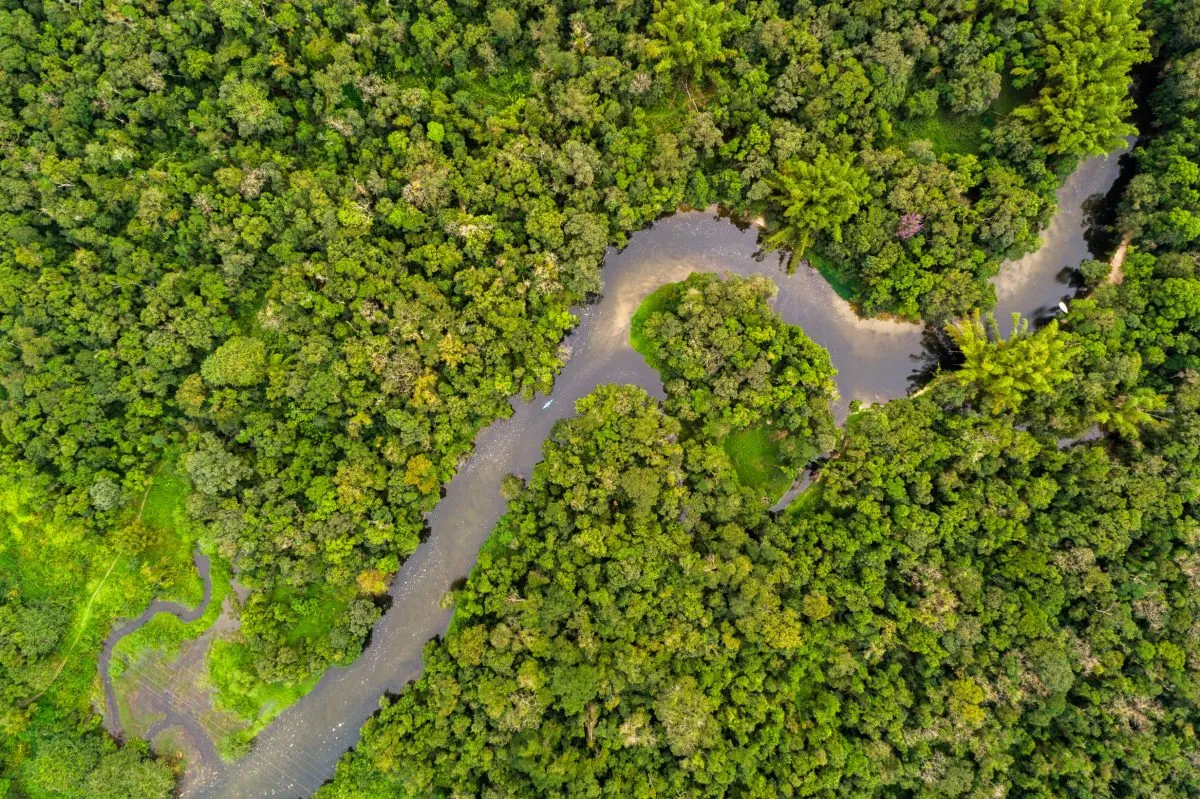This article is part of a series produced in collaboration with the African Development Bank in light of its sixtieth anniversary. Please visit our dedicated portal to read about the Bank's history and its activities on the continent.
A new report by the African Development Bank reveals that the exclusion of Africa’s natural assets from the continent’s GDP measurement is hindering crucial financial flows. Launched on the sidelines of the World Leaders Climate Action Summit at the 29th Conference of the Parties (COP29) in Baku, the report outlines key actions to value and integrate natural capital into Africa’s GDP.
Africa’s vast natural capital, essential for sustainable development, includes significant clean energy potential, arable land, marine resources, and two of the world’s largest rivers, the Congo and the Nile.
These resources provide crucial environmental services globally, such as carbon sequestration, pollution control, and soil fertility retention, which are vital for sustaining human life. Notably, the Congo Basin remains one of the few regions worldwide that absorbs more carbon than it emits.
“Africa contributes significantly to global public good for tackling climate change with its vast resources of natural capital, yet its vast natural capital has been undervalued,” stated Dr. Akinwumi Adesina, President of the African Development Bank.
Green rich but cash poor
Dr. Adesina said that this situation makes Africa “green rich but cash poor.” He highlighted that in 2018, Africa’s GDP was estimated at $2.5 trillion, which is 2.5 times lower than the estimated value of its natural capital, evaluated at $6.2 trillion in 2018.
Dr. Adesina also expressed concerns about what he termed as a “carbon grab,” highlighting that African countries are surrendering large tracts of land for carbon credits but receiving minimal returns, as they trade their forests for very low prices of carbon. This issue stems from the undervaluation of the continent’s natural capital.
“While the price of carbon in Europe is high and could be as high as $200 per ton because of the strict EU Emission Trading Standards, carbon price in Africa could be as low as $3 to $10 per ton,” he noted.
Moreover, Dr. Adesina pointed out that the sequestered carbon on these lands can no longer be used as part of African countries’ Nationally Determined Contributions, leading to a loss of sovereignty over their lands. He described the ongoing carbon grab in Africa as a “lose-lose proposition.”
African leaders rally behind initiative
In their communique, African leaders said they will work with other developing countries and regions of the world, including Latin America and the Caribbean, as well as Asia, in forging a strong global alliance to ensure the inclusion of natural capital in the GDP of nations.
President Denis Sassou Nguesso of Congo said that, for decades, African countries have been engaged in environmental protection for the survival of humanity, including renouncing development projects likely to destroy peatlands and other carbon sinks. “That is why the African continent should make the most of its large natural capital which, until now, has been neglected or ignored in systems of national accounts”, he emphasized.
President Paul Kagame of Rwanda said he fully supports the bold agenda to measure the continent’s natural capital, arguing that it would help address the deep rooted challenge of accessing climate finance.
“We are not asking for handouts but for the world to pay for something that has tremendous value for all of us,” he said.
President William Ruto of Kenya, represented by Prime Cabinet Secretary Musalia Mudavadi, said at the heart of the leaders’ conversation is the need to “ensure that Africa’s ecosystem services such as carbon sequestration and pollution control are valued as global public goods.
“By appropriately valuing our green wealth, countries can unlock financial flows into investments to boost our economies and even improve our credit ratings,” he said.
The high-level meeting, titled ‘Measuring the Green Wealth of Africa’, was jointly convened by the President of the Republic of Congo Denis Sassou Nguesso, his Kenyan counterpart Dr William Ruto (represented by the Prime Cabinet Secretary and Cabinet Secretary for Foreign and Diaspora Affairs Musalia Mudavadi), and Bank President Adesina.
It was attended by President Paul Kagame of Rwanda, Zimbabwe’s President Emmerson Mnangagwa, and President Faure Essozimna Gnassingbé of the Republic of Togo, among other high level government representatives from other African states.

 Sign in with Google
Sign in with Google 



